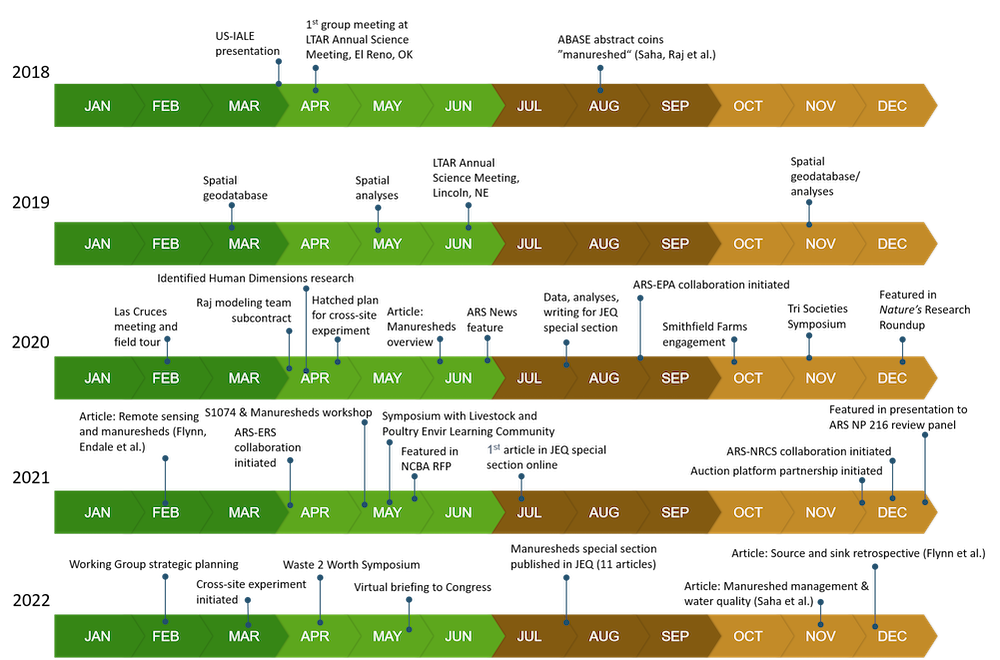Recent increases in fertilizer prices along with supply chain disruptions have resulted in grave challenges for agrifood production from field to plate. Using animal manure in place of commercial fertilizer is a promising strategy that turns agricultural waste byproducts from a liability for animal producers into a beneficial resource for crop producers. However, this age-old strategy is difficult in modern agricultural systems because manure is hard to transport, and the material is less predictable than commercial fertilizers. The USDA “Manureshed” management research program was developed to understand the spectrum of opportunities and constraints for substituting manure for fertilizers, focusing on manure production, distribution, use, and economics. Led by USDA-ARS scientists in the Long-Term Agroecoystem Research Network, this comprehensive program takes advantage of USDA’s extensive data systems, stakeholder networks, and innovative technologies to identify and promote efficient and impactful opportunities for manure nutrient recycling across agricultural supply chains. Manure brokers are using products from the initiative to develop a market platform which connects animal producers who have surplus manure with crop farmers who can use it. A major animal agriculture trade organization sent out a call for research proposals to explore industry sustainability in relation to manuresheds. Further, manureshed data and concepts were integrated into continuing education curricula for extension agents, and the USDA Economic Research Service is using expertise from the Manureshed initiative to write a national-level report on manure recycling, creating a useful offering for researchers and stakeholders alike. Major cost savings are expected in the crop farming sector where manure is used instead of expensive commercial fertilizers.
Recovering manure’s fertilizer value for a secure U.S. agriculture
by Admin | Oct 14, 2022 | LTAR News | 0 comments
